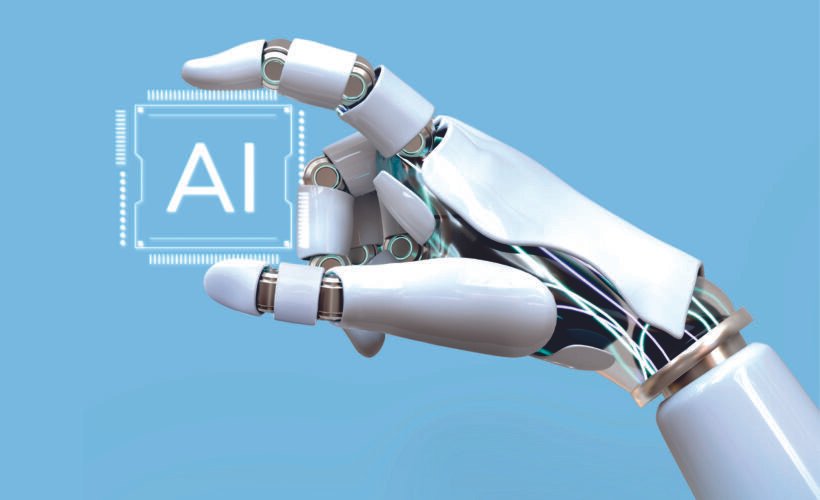
Goa’s technology influencers speak about the impact of AI on business
“Businesses are employing Artificial Intelligence (AI) in a variety of ways to improve efficiencies, save time and decrease costs. With continued advancements, AI is quickly becoming a precious resource for companies across industries. Artificial Intelligence refers to the simulation of human cognitive functions by machines. It includes a wide range of technologies that enable machines to perform tasks traditionally requiring human intelligence, such as
reasoning, problem-solving, decision-making, and learning from experience. Today, AI is an umbrella term that includes various subfields, such as machine learning, deep learning and natural language processing. AI has revolutionised various business functions, including marketing strategies, product development, sales efficiency, customer support, human resources, operations and security. Marketers and business professionals leverage AI to create stronger campaigns, make smarter decisions and streamline workflows. AI is changing the game and setting
new benchmarks for business excellence. AI and automation solutions provide businesses with targeted insights and capabilities to navigate the complexities of today’s digital landscape.
We probably interact with AI on a daily basis and don’t even realise it. Today, AI is a household name – and sometimes even a household presence (Hello, Siri/Alexa!). Rather than serving as a replacement for human intelligence and ingenuity, artificial intelligence is generally seen as a supporting tool. Although AI currently has a difficult time completing commonsense tasks in the real world, it is adept at processing and analysing troves of data much faster than a human brain could. AI software can then return with synthesised courses of action and present them to the human user. In this way, we can use AI to help game out possible consequences of each action and streamline the decisionmaking process.
Here are few advantages that AI brings to organisations across various industry sectors
1. Better Decisions: Organisations use AI to make ‘data driven decisions’ instead of ones based on individual instincts, or intuitions which are prone to being tainted by personal biases and preferences.
2. Efficiency and productivity gains: AI lets organisations minimise the costs associated with performing mundane, repeatable tasks that can be performed by technology while maximising the talent of their human capital.
3. Improved speed of business: AI essentially enables shorter cycles and cuts the time it takes to move from one stage
to the next and that shortened timeline, in turn, delivers better and more immediate ROIs.
4. Personalised customer services and experiences: AI analyses and learns from data to create highly personalised
and customised experiences and services. This is not only in the realm of streaming services such as Netflix but also healthcare where it customises treatments and in work environments, where it supports an employee’s individual requirements.
5. Improved services: AI creates interactions with technology that are easier, more intuitive, more accurate and
thus better all around. For example a real estate site that employs generative AI, gives better results as users can refine their property listing searches through conversational queries rather than clicking on exhaustive lists.
6. Better talent management: Companies are using AI to improve many aspects of talent management from streamlining the hiring process to rooting out bias in corporate communications. Moreover AI enabled processes not only save companies hiring costs but can also affect workplace productivity by successfully sourcing, screening and identifying top-tier candidates.

7. Industry – specific improvements: AI can fuel industry-specific improvements in different sectors. For instance, retailers can use AI to better target their marketing efforts, develop a more efficient supply chain and better calculate pricing for optimal returns. The pharma sector can use AI to perform drug discovery data analysis and predictions. The financial industry can use AI to strengthen its fraud detection efforts. There are many more advantages to using AI in business than the ones listed above.
It is important to remember that, as companies find ways to use AI for competitive advantage, they’re also grappling with challenges. Concerns include AI bias, government regulation of AI, management of the data required for machine learning projects and talent shortages. In addition, financial gains can be elusive if the talent and infrastructure for implementing AI aren’t in place. Research suggests that AI doesn’t always perform best on its own. AI technologies are great at driving or even replacing the lower-level, repetitive tasks, but businesses
often achieve the greatest performance improvements when humans and machines
work together. To make the most of this powerful technology, you should consider AI as a means of augmenting rather than replacing human capabilities. It is high time for startups, SMEs, and enterprises to embrace AI.
By embracing AI with a focus on strategic and ethical implementation, businesses are preparing for the future and actively shaping it. They are creating a landscape where technology and human ingenuity converge to drive
unprecedented growth and customer satisfaction. Whatever your reason for considering AI, the potential is there for it to change the way your business operates. All it takes to start is an openminded attitude and a willingness to embrace new opportunities wherever and whenever possible.” – HARSHVARDHAN BHATKULY
Publisher – Editor, Business Goa
Explore various funding options and foster diversity within AI teams
“Budgeting and funding for AI initiatives over the next few years requires a strategic approach. Start by clearly defining your AI goals and prioritising initiatives based on their alignment with your business objectives.
Estimate costs by considering factors such as software and hardware purchases, hiring or contracting AI talent, training data acquisition, and ongoing maintenance. Calculate Return on Investment (RoI) by projecting benefits like increased productivity, cost savings, revenue generation from new products or services, improved customer experiences, and competitive advantages against the incurred costs. It is crucial to also consider
 long-term benefits such as improved efficiency, better decision-making capabilities, and scalability. Explore various funding options such as operating budgets, dedicated AI budgets, venture capital funding, strategic partnerships, or government
long-term benefits such as improved efficiency, better decision-making capabilities, and scalability. Explore various funding options such as operating budgets, dedicated AI budgets, venture capital funding, strategic partnerships, or government
grants and incentives based on your organisation’s financial resources and goals.
Continuously monitor and evaluate the progress and outcomes of your AI initiatives, regularly assessing their impact on Key Performance Indicators (KPIs), and adjusting budget and funding strategies as needed to ensure they deliver tangible value and align with evolving business needs. To tackle the social impact of AI, it is crucial to establish an ethical framework that prioritizes fairness, transparency, and inclusivity throughout AI development and deployment. This includes fostering diversity within AI teams, engaging stakeholders to address concerns and gather input, and ensuring transparency and explainability in AI algorithms and decision-making processes. Additionally, maintaining robust data privacy and security measures, continuous monitoring for biases or errors, and educating the public about AI technologies and ethics are essential steps to mitigate negative social impacts while maximizing the benefits AI can bring to society.” – MANGIRISH SALELKAR, CEO, UMANG Technologies
AI CREATES FAVOURABLE CUSTOMER EXPERIENCES
“When it comes to enhancing goods, services, and the customer experience, AI has the potential to be revolutionary.
AI is capable of producing individualised experiences by analysing consumer data. For instance, it can customise marketing messaging, make product feature recommendations based on past purchases or browsing
activity, and adjust product features to suit individual tastes. Using AI to drive predictive analytics can assist to anticipate consumer behaviour by finding possible up-sell opportunities and predicting which customers are most likely to leave. By using this data, client retention can be increased and requirements can be proactively met. By instantly responding to frequently asked questions, making tailored recommendations, and even managing transactions, the use of AI-powered chatbots and virtual assistants can improve customer service.
Businesses may comprehend and analyse unstructured data, such as customer reviews, social media interactions, and support requests, by using natural language processing, or NLP. 
This can provide important information for enhancing goods and services in response to client feedback. AI is capable of streamlining workflows, optimising procedures, and automating repetitive jobs. Efficiency is raised in this way, and human resources are freed up to work on other important projects. By integrating AI into various aspects of your business, you can enhance product quality, streamline operations, and deliver a more personalised and engaging customer experience. It is imperative to tackle the societal implications of Artificial Intelligence (AI) in
order to optimise its advantages while mitigating any possible hazards or unfavorable outcomes. Define precise ethical standards and directives for the creation, application, and utilization of AI systems. This includes making sure AI systems are equitable, accountable, transparent, and respect user privacy. To reduce bias and guarantee that AI systems are created to serve a variety of groups fairly and equitably, encourage diversity and inclusivity in AI development teams. Make AI systems understandable and visible to stakeholders and users. Provide users the ability to comprehend and question AI decisions as needed by providing transparent explanations of the decision-making process. Put strong data security and privacy safeguards in place to safeguard private data and make sure AI systems abide by applicable laws and guidelines, like the CCPA or GDPR. Enact oversight procedures and governance frameworks to keep an eye on and assess the social effects of AI implementations. To find and fix any risks or biases, this entails performing routine audits, assessments, and impact evaluations. Inform all relevant parties – employees, clients, legislators, and the broader public – about the potential, constraints, and moral issues surrounding AI
technology. Encourage the proper use of AI and advance ethical AI literacy. To co-create and implement, encourage cooperation and engagement with stakeholders from a variety of backgrounds, such as academia, civil society, business, and government. Give human-centered design concepts top priority while developing AI systems to make sure that users’ interests and well-being are taken into consideration. Engage end users in the design process and make iterative use of their comments. By implementing these tactics, businesses may maximise the beneficial effects of AI technologies on society and help to ensure that they are used in a moral, inclusive, and socially conscious manner.” – SUJEET SHETTY, President, Goa Technology Association
AI’s capacity for innovation empowers us to tackle challenges on a local as well as global scale

“AI offers a promising path to shaping a better world. By streamlining processes and enhancing productivity, AI frees up time for more meaningful pursuits, fostering a higher quality of life. Moreover, AI’s capacity for innovation empowers us to tackle challenges on a local as well as global scale, while also promoting equality and sustainability through improved access to resources and ethical considerations. Embracing AI intelligently can help create a future that is efficient, innovative, equitable, and ethically grounded, enriching the lives of individuals and communities.
Addressing AI’s social impact involves ensuring fairness, transparency and accountability in AI systems, while empowering individuals through education and fostering interdisciplinary dialogue on ethical and privacy concerns.
By proactively tackling these issues, we pave the way for a more inclusive and equitable society” – CALEB FERNANDEZ, Co-founder, Kilowott
AI SHOULD BENEFIT EVERYONE

“AI can be amazing, but it also comes with risks to privacy, security, and fairness. If we don’t handle these risks, people will not trust AI. To use AI successfully, we need to be upfront about it. We need strong rules about how data is used, make sure AI does not treat people unfairly, build security into AI systems, and follow clear ethical guidelines. If we do these things, people will trust AI, and it can help us do great things.AI is changing our world – we need to make sure those changes are good for everyone. That means listening to different voices when building AI, so it helps all kinds of people. We need to teach everyone about AI, so they understand how it works. We must protect jobs and help workers learn new skills for the future. And most importantly, we need rules to make sure AI benefits the whole world, not just a few” – MILIND ANVEKAR, Senior Vice President, Open Destinations
NEED TO FOCUS ON AI FOR MACHINES AND LOCAL APPLICATIONS

“When we talk of AI, development is usually taking place in generative ultra features intelligence. There is a lot of money being invested by giants like Google and Microsoft. It is generally difficult for smaller companies to have huge budgets for AI research. We need to focus on AI for machines, and local applications. Every company is budgeting towards development of AI to make things easier for their clients and customers. We are looking at 40-50% being targeted towards AI. When it comes to hardware, AI needs human intervention. This is where money needs to be put in for research and development so that simple machinery like a washing machine or air conditioner, can function
without human intervention. This is what we require AI for, so that your normal everyday tasks become easier. When it comes to the social impact of AI one has to be careful. If you pose a certain question you will get the answer that you want which may not necessarily be correct. There is a lot of concern with regards to generation of images and data that you require. AI is still in its nascent stages and there are biases that have crept in with regards to generation of information” – GURUDATTA SARDESSAI, Serial Tech Entrepreneur
AI will take over the mundane run of the mill stuff. But for the one off issues we will still need humans

AI will soon take over all aspects of life, not just business and marketing. The way I look at it is that we need to blend AI and humans. Else it becomes very robotic and lacks the human touch. So you know, it should be a blend. So if you imagine a scenario like this where I reach out with a problem, and AI is able to go through a set of solutions and offer it to me. Around 70% of your work gets done this way, but the remaining 30% needs the human touch. Yes, AI will take over the mundane run of the mill normal stuff. But for the one off issues we will still need humans. There are two things I believe AI is going to impact socially. One thing is privacy. With AI you have to be very careful about privacy. So whenever anyone is programming AI, they have to be careful about people’s privacy because you never know where that information is going to go. Second thing is the social nuances, like certain things in
certain societies don’t really work well. So, there has to be knowledge of the social menu, that you’re writing the AI program for. You’ve got to be really careful about how you word the terms because there are certain things that are offensive to people of different countries that go against their culture. I believe that AI is a great thing and it can really help us advance in our daily lives” – AMERICO (RICKY) NORONHA, Director, Online Productivity Solutions





